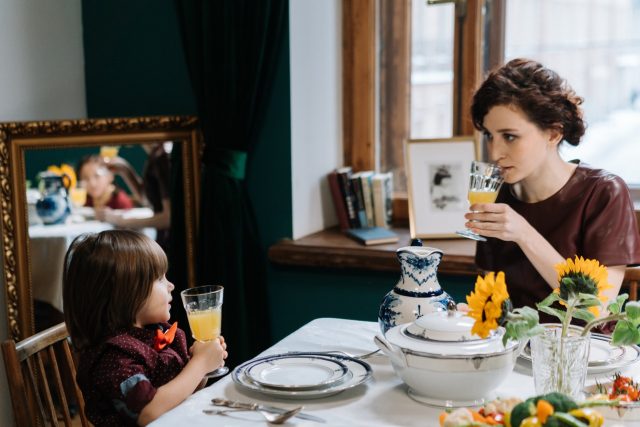Etiquette refers to a customary code for polite behaviour in a particular setting or circumstance. The rules of etiquette may differ greatly depending on the culture and this is particularly true for customs regarding food.
Each society has developed various customs when it comes to eating, many of which have evolved or been passed down over centuries. What is polite in one culture could be viewed as the height of rudeness in another, so it pays to research table etiquette before eating a meal in another country or community, especially if dining in someone’s home.
Japan
In the UK, we typically think people who eat too loudly are not very polite. However, in Japan it is considered a mark of respect and enjoyment to slurp noodles as loudly as possible. Rather than become annoyed with a loud eater, people in Japan simply assume that the person is thoroughly enjoying their meal. It is also believed that slurping helps to improve the flavour of the dish, and by coating the noodles in a layer of saliva they cool down faster, meaning the meal can be eaten more quickly.
France
In France, many people would consider an offer to split the bill after a meal as highly unsophisticated and a little rude. The two polite courses of action are to offer to pay the bill for the entire table, or graciously accept when someone else offers to pay the entire bill.
It is also considered rude in France to start eating bread before the main meal has arrived at the table, even if the bread is already there. Bread is more of a utensil than a side dish, designed to allow diners to push the food onto their fork and soak up the juices of the dish. Diners should always tear off chunks of bread to eat rather than bite into the roll, and the bread should be placed on the tablecloth or a napkin rather than on the dinner plate.
India
In many communities in India, cutlery is virtually non-existent at the table. Meals are served for people to eat with their hands, using breads to scoop up dishes in sauce. However, diners should be aware that they should only ever use their right hand to pick up food, never the left, and they should avoid putting their fingers directly into their mouths.
In a friendly social setting in India, it is also considered impolite to thank someone for performing a task such as passing food or doing something to make a visitor feel more comfortable. These are gestures that are simply expected in a relaxed dinner setting and saying thank you implies a more formal relationship than a friendly one.
China
In China, a dinner host would be most offended if a guest were to finish everything on their plate. While in the West this would be a sign of having enjoyed the meal, to the Chinese it is a sign that they have not provided enough sustenance for their guests. Therefore, no matter how delicious the meal is, guests should be sure to leave a small morsel of food on their plate when they finish.
About Simon Whalley
Simon Whalley is a composer and music lecturer who has held directorial roles at both Eton College and Oxford University. He has also worked with the Church of Saint Mary the Virgin in New York as an organist and music director.













